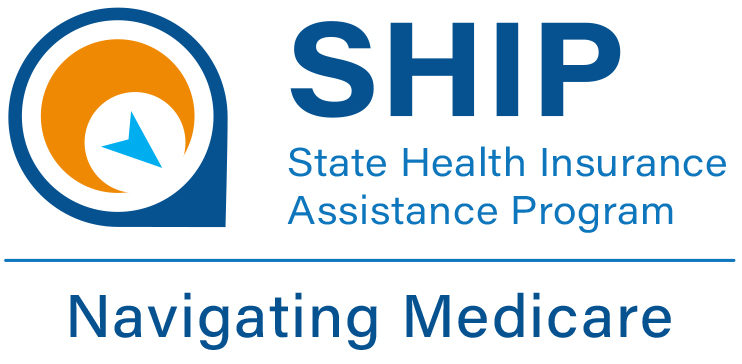Seniors can navigate insurance options confidently by understanding key elements such as Medicare, Medigap, & long-term care insurance. It’s crucial to assess individual health needs, budget constraints, & available coverage plans. Utilizing resources like local agencies, online tools, & consultations with insurance specialists can clarify complex policies & ensure suitable choices. Engage with community programs or senior advocacy groups for personalized guidance & support in making informed decisions, ensuring comprehensive coverage tailored to unique circumstances.
Essential Insurance Help for Seniors: Navigate Your Options with Confidence. Discover essential insurance help for seniors. Navigate your options with confidence & find the coverage that suits your needs. Get started today!

Understanding Insurance Needs for Seniors
Many seniors face unique challenges related to their insurance options. As a senior myself, I have navigated through various policies, ensuring I make informed decisions concerning my healthcare. With numerous choices available, understanding various aspects can sometimes feel overwhelming, causing stress & uncertainty. Fortunately, gaining knowledge about types of insurance readily available helps build confidence needed for making appropriate choices.
Types of Insurance Available for Seniors
Health Insurance
Health insurance stands as one of most crucial insurance types for seniors. Medicare, a federal program, provides coverage specifically designed for individuals aged 65 & older. Understanding Medicare parts – A, B, C, & D – helps in maximizing benefits from this program. By reviewing each part, seniors can select coverage that suits specific healthcare needs.
Another option is Medicaid, which offers assistance for low-income seniors. Eligibility criteria vary by state, making opportunity for finding additional coverage accessible. Seniors should explore both options in conjunction with their financial circumstances, ensuring they receive essential medical services.
Long-Term Care Insurance
Long-term care insurance becomes essential for protecting assets & ensuring access necessary services. This insurance type covers various services, including home care, nursing facilities, & assisted living. Many often forget about potential long-term care costs, yet they can be significant. By investing in this insurance, seniors protect their savings from depleting rapidly.
Understanding terms of coverage can prevent surprises. Not all policies cover every type of care, so seniors must read through contracts thoroughly & ask questions when needed. This vigilance ensures appropriate care without significant financial burden, allowing seniors to maintain a good quality of life.
Life Insurance
Life insurance provides financial support for beneficiaries after policyholder’s passing. For seniors, determining necessity of life insurance often depends on personal financial situations. Those with dependents may find peace knowing loved ones receive assistance during difficult times.
Term life insurance offers temporary coverage, while whole life insurance guarantees lifelong coverage. Evaluating needs within context promotes appropriate decisions. Consultation with a financial advisor can provide additional clarity related to selecting best options that serve unique requirements.
Essential Factors When Choosing Insurance Policies
Premiums & Deductibles
When reviewing various insurance options, premiums & deductibles play significant roles in decision-making processes. A premium refers to payment made for insurance coverage, while deductible indicates amount required to pay out-of-pocket before coverage activates. Finding a balance between affordable premiums & reasonable deductibles can enhance overall financial wellness for seniors.
For many, selecting plans with higher deductibles can lead to lower monthly payments. Be that as it may, this choice may lead to higher costs later when care is necessary. Conducting thorough assessments protects individuals from unexpected expenses that may arise, ensuring appropriate financial planning as health conditions change.
Network Providers
Network providers dictate which doctors & facilities seniors can utilize without incurring extra charges. Understanding provisions offered becomes crucial when choosing a health insurance plan. Some plans operate within limited networks, restricting choices for specialists & healthcare providers.
Seniors should evaluate preferred providers’ participation in specific networks before signing any agreements. This can significantly impact healthcare experience as choice of medical professionals contributes immensely towards overall satisfaction. Selecting plans that cover preferred providers ultimately preserves autonomy in personal health decisions.
Coverage Limits
Coverage limits refer to maximum amounts an insurance company will pay for a given service or throughout a policy term. Not all policies come with comprehensive coverage, making this aspect fundamental for consideration. Understanding limitations & exclusions prevents unexpected out-of-pocket costs.
Many plans set caps on specific services, especially within long-term care insurance. Seniors must ask about any coverage limits related to needs anticipated in upcoming years. Being informed allows for robust financial planning, ensuring ample funding for future health-related expenses.
Financial Assistance Programs for Seniors
State Programs
Various state programs exist, specifically targeting seniors needing financial assistance related to healthcare insurance. By researching programs within their regions, seniors can access additional support ensuring necessary coverage becomes feasible. Many states provide programs that help with Medicare premiums & deductibles.
Eligibility requirements & funding fluctuate by state, necessitating thorough research to find appropriate options. Many seniors may not realize how many resources exist that can lessen financial burdens, contributing towards improved healthcare accessibility.
Non-Profit Organizations
Non-profit organizations often play a vital role in helping seniors navigate insurance puzzles. These organizations frequently offer free workshops, consultations, & resources tailored for individuals seeking assistance with their insurance decisions. Working closely with such organizations can empower seniors by providing valuable insights.
Association partnerships often lead to discounts or specialized programs; therefore, taking advantage of these services becomes prudent. Finding support through non-profits guarantees senior citizens maintain confidence throughout navigation of complex insurance options.
My Personal Experience with Insurance as a Senior
Drawing from my own experiences, I learned valuable lessons about selecting insurance policies. Early on, I made decisions based on advertised premium costs without fully understanding other factors involved. Reflecting on those moments, I now recognize importance of considering premiums, coverage, & providers before committing to any plan. With diligence & research, my confidence in choosing appropriate policies to fit my needs grew immensely.
Important Questions to Ask When Reviewing Policies
What Services are Included?
Understanding what services each insurance policy covers helps ensure that necessary care remains accessible. Often, companies advertise numerous services, but hidden clauses may limit availability. Seniors must ask specific questions regarding essential services both currently needed & potential future needs.
Taking time to clarify uncertainties can prevent future financial loss or healthcare difficulties. Engaging with insurance agents can yield necessary information, leading towards informed decision-making without hasty commitments. Knowledge remains power in insurance landscape.
Are There Any Waiting Periods?
Many insurance policies come with waiting periods before coverage activates. Understanding this aspect can be crucial for those anticipating immediate healthcare needs. Asking about potential waiting periods allows seniors to plan accordingly, especially regarding treatments or services they may require shortly after enrolling.
By identifying these timelines upfront, seniors can seek alternative care solutions, ensuring they remain protected without delays. Being proactive reduces stress associated with unexpected health issues that may arise during waiting periods.
Critical Considerations for Supplemental Insurance
Medigap Policies
Medigap insurance complements Medicare, filling gaps left by original Medicare plans. For seniors wishing to minimize out-of-pocket costs, considering Medigap policies often becomes a wise choice. These plans generally assist with copayments, deductibles, & coinsurance, improving overall financial management.
Eligibility for Medigap coverage requires enrollment in both Medicare Part A & Part B, making timing critical during insurance selection process. Assessing various Medigap plans can lead seniors toward enhanced financial security regarding healthcare costs, enabling more focus on well-being rather than financial concerns.
Prescription Drug Coverage
Prescription drug coverage forms another important consideration, particularly for seniors managing chronic medications. Medicare offers plans that specifically cater to this need, allowing individuals access to necessary medications without overwhelming costs.
Researching available options for medication coverage helps ensure essential treatments remain affordable. In addition, seniors must regularly review their plans, as medications may change. Prioritizing this aspect of insurance guarantees peace of mind concerning ongoing health requirements.
Additional Resources for Seniors
Online Tools & Calculators
Utilizing online tools often simplifies insurance exploration for seniors. Various websites provide calculators designed to help individuals determine required coverage based on personal health circumstances. Engaging with these tools offers unique insights into potential costs & benefits associated with chosen plans.
On top of that, online forums enable seniors to connect with others navigating similar insurance choices. Sharing experiences & advice can ease confusion, helping seniors feel less isolated while making significant policy decisions.
Workshops & Community Events
Attending workshops or community events can prove invaluable for seniors seeking additional insurance knowledge. Such gatherings often feature experts discussing various topics related to insurance, allowing attendees to ask specific questions in real-time. Armed with newfound information, seniors walk away feeling empowered.
Watching local non-profits host these events can lead to connections within communities where support becomes beneficial. Events foster a shared learning environment that enables seniors to advocate for themselves confidently.
Essential Takeaways for Navigating Insurance as a Senior
Empower Yourself Through Education
Education remains critical when navigating insurance choices. Familiarizing oneself with types of coverage available paves ways for making informed decisions. Seniors find confidence through knowledge, ensuring they select plans that cater specifically to their needs.
Staying abreast of changes in laws, programs, & options helps seniors maintain control over their healthcare decisions. Taking initiative to seek information empowers individuals, enabling them to make choices that support overall well-being.
Seek Expert Advice
Consulting with experts provides deeper insights into complex insurance landscape. Don’t hesitate seeking assistance from licensed professionals who specialize in senior insurance needs. Gaining expert perspectives ensures any questions receive adequate answers, reinforcing confidence throughout decision-making processes.
Comparative Analysis of Insurance Providers
| Insurance Provider | Plan Type | Average Monthly Premium |
|---|---|---|
| Aetna | Medicare Advantage | $50 |
| Blue Cross Blue Shield | Medigap | $150 |
| Humana | Prescription Drug | $40 |
Financial Planning Tips for Seniors
Budgeting for Insurance Costs
Effective budgeting becomes crucial as seniors consider various insurance options. By assessing current income & anticipated expenses, individuals can determine how much can reasonably allocate towards premiums. Careful planning may help avoid financial strain associated with unexpected health events.
Using a spreadsheet or budgeting application will assist in tracking all income versus expenses to provide clarity in financial decisions. Establishing clear priorities regarding healthcare coverage can ensure adequate funding allows for necessary treatments.
Review & Adjust Regularly
Insurance needs often change over time, making regular reviews necessary for maintaining adequate coverage. Individuals should schedule annual audits of their policies, examining both costs & benefits. This proactive approach allows for adjustments as health conditions or financial situations evolve.
Staying flexible while adapting coverage helps seniors navigate challenges related to policy changes efficiently. Keeping abreast of available options & seeking expert advice aids in maximizing insurance benefits.
Sample of Essential Insurance Help Options
Insurance Policies to Consider
- Medicare Advantage Plans
- Long-Term Care Insurance
- Medigap Policies
- Life Insurance Policies
- Prescription Drug Plans
Expert Quotes on Insurance for Seniors
“Seniors must become educated consumers in order to navigate complex insurance options thoughtfully.”
Key Contacts for Senior Insurance Assistance
- Medicare.gov for Medicare Information
- SeniorSource.org for Local Resources
- Insurance Information Institute for General Guidance
- AARP for Discounts & Benefits
- State Health Insurance Assistance Programs (SHIP)
Navigating Your Insurance Options
By taking ownership of your healthcare decisions, you can craft a personalized approach surrounding your specific needs. Consideration of potential healthcare costs, coupled with available insurance types, leads individuals towards responsible decisions. With this newfound awareness, confidence can flourish.
Comparison of Coverage Options
| Coverage Type | General Coverage Benefits | Cost Range |
|---|---|---|
| Medicare | Hospital care, doctor visits | $0 – $499/month |
| Long-Term Care | Home care, nursing home | $200 – $400/month |
| Life Insurance | Financial support for dependents | $20 – $300/month |
Through comprehensive understanding & exploration of available options, seniors can face insurance decisions with unwavering confidence. Awareness leads to informed choices that not only protect health but enhance overall quality of life.

Conclusion
Getting the right insurance can feel overwhelming, especially as a senior. But with the right guidance, you can navigate your options with confidence. Remember, seeking **essential insurance help for seniors** is a smart step towards securing your peace of mind. Take your time to explore different plans & ask questions. Whether it’s **health insurance**, **life insurance**, or **home insurance**, understanding your needs is key. Don’t hesitate to reach out for support, & soon you’ll be making informed decisions that protect you & your loved ones. You’ve got this!


